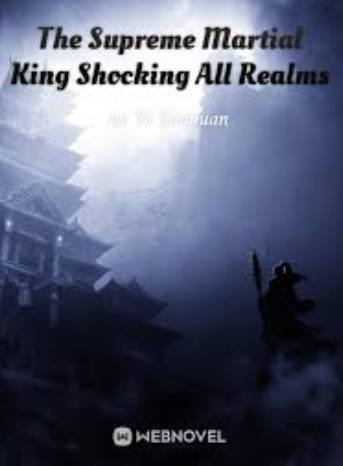Chapter 124: issued a decree
Chapter 124 issued a decree
ps: On the first day of July, ask for a monthly pass, please collect it!
"Damn, I'm sick! People come here every time I eat!"
Edward ate the white bread in his hand that looked like a meat sandwich, with meat strips and vegetables mixed in the bread.
This is what Edward specially ordered the chef to do, so that the bread is not so unpalatable.
Edward stopped the bread that was running, looked at the little loli who was sitting aside and was struggling with the goose legs, and continued to eat.
"Who is it?" Edward took a big bite of the bread in his hand regardless of his image, and then put some chili sauce on it.
"Your Majesty, it's Hanseatic merchant Mark Leutz!" Lucy said softly, pretending not to see it.
"Oh! Is that the Leutz family who buy salt in our England?"
Edward paused for a moment, then started eating again.
"Yes, last time he came, he left five hundred pounds!"
"Oh, I see, this is a rich master!"
Edward sighed, swallowing the bread in his mouth.
"Interview with him today and see what he has to say!"
"Let him wait in the living room for a while, I'll see him after I finish eating!"
Edward was still eating his own bread, chewing non-stop.
"Yes, Your Majesty!" After receiving Edward's order, Lucy twisted her waist and walked out.
After receiving Lucy's words, Mark felt unspeakable joy in his heart.
"Miss Lucy, this is my gratitude to you, please serve me!"
If it was another maid, Mark would not bribe her with money, but who told her to be His Majesty's maid! As long as she speaks a word in front of the king, his meeting will be for naught!
This is not the first time someone has given her a gift. Lucy took a look and realized that this is a villa in a rich area of London. It is estimated to be around 300 pounds, which is a lot of wealth.
Lucy glanced at Mark with good-looking eyes, and then accepted it, tacitly.
"His Majesty the King will come to see you after dinner in a while, watch for yourself!"
Lucy, who was originally expressionless, finally showed a smile, revealing a little tone.
"Okay, Miss Lucy! I will pay attention!" Mark responded immediately, with a flattering smile on his face.
Mark was spinning around in the living room bored, thinking about how to tell the little king of England in his mind.
After about half an hour, Mark, who was bored sitting in a chair, finally saw Edward's figure.
"Good day, His Majesty the King of England!" Mark greeted him and bowed.
"Good day, Mr. Leutz!" Edward nodded politely.
Edward entered the living room and sat on the main seat. Immediately after seeing the businessman of the Leutz family of the Hanseatic League standing beside him, he was very polite.
"Oh, Mr. Leutz, sit down quickly! I am very impressed with the reputation of the Leutz family!"
Edward said with a surprised expression.
"Thank you, Your Majesty!" Mark sat down politely after hearing Edward's words.
"Mr. Leutz, I don't know why you asked to see me? What's the matter?"
Just finished eating, Edward took a sip of tea and moistened his throat. After all, he had just eaten bread.
"Your Majesty, the first thing I came this time was to congratulate you on starting the government. This is really a pleasant thing for the people of England!"
"The second thing is to give you some money!"
"Oh! There is such a good thing, my Mr. Leutz, come and tell me about it!"
As soon as money was mentioned, Edward raised his spirits and became interested.
Although Edward currently owns two businesses that make money, the bar and the sale of liquor, who would think that the money is low?
"Your Majesty, you must know that the sea salt business is the main business of our Leutz family!"
"And I stayed in London to buy England's sea salt."
"I understand that, it's a good business!"
Edward couldn't help pursing his mouth and sighing.
The importance of table salt is beyond doubt, it is a must for everyone.
In the Middle Ages, when technology was underdeveloped, the importance of table salt was magnified a lot.
In the ancient Mesopotamia, intelligent humans learned how to use salt, and they used it for military purposes.
Whenever a city was destroyed, the ancient Assyrians and Hittites would sprinkle salt in the city to express the curse that the land here would become barren (the land with high salt content is not conducive to the growth of crops).
So, this is also the reason why there are so many deserts in the Mesopotamia. It is really a harmful idea, and this custom spread to Europe and was carried forward in medieval wars.
Salt was a precious commodity from the late Roman Empire to the Middle Ages.
Merchants transported salt to inland Germans via the "Salt Road". In the Sahara Desert, the Tuareg people who are good at desert trade have always maintained a trade route exclusively for salt trucks.
To transport salt to the inland Sahel region, a caravan can organize 40,000 camels.
Sometimes, caravans exchange salt for slaves. Timbuktu, on the southwestern edge of the Sahara Desert, was once a thriving salt and slave market.
By 1960, caravans still traveling through the desert were transporting 15,000 tons of salt a year.
But now this trade has dropped to one third of what it was back then.
Unlike China, salt was nationalized as early as Emperor Wu of the Han Dynasty. In the Middle Ages, salt was always dominated by merchants. Monarchs and kings like Edward could only share some of the residue.
"Your Majesty, our Leutz family is willing to spend half of the annual purchase share to buy sea salt from you!"
"That's about half a million pounds, we'll buy it from you directly!"
"We pay six shillings directly for the pound."
Gritting his teeth, Mark said with determination, feeling a little pain in his heart.
You know, the usual purchase price of salt per pound is only about five and a half shillings. This time, in order to show sincerity, I directly raised half a shilling. This is really cutting flesh!
After listening to Mark's words, Edward made a calculation directly in his heart.
Three million shillings, or two hundred and fifty thousand pounds, my God! This is almost double the annual income of the royal family, and it is not much different from the national treasury income.
Edward has his own manor and territory, as well as his own serfs, and there is no shortage of coal.
In this way, the cost is almost zero, which is equivalent to lying down every year, and 250,000 pounds will be recorded.
Don't be too comfortable like this. After calculating such a large profit in his heart, Edward had the idea of leaving the Leutz family and going it alone.
But when I think about it, I don’t have the contacts of the Leutz family in Northern Europe and Germany, so even if I produce it, I won’t sell it, so let’s cooperate with the Leutz family!
But in addition to Northern Europe, Spain and Portugal, as well as the African region and the Mediterranean region can become their own targets.
As long as they occupy the market in these places, then they are going to make a fortune.
"Oh? Is that so?" Although Edward was overjoyed, his face remained calm.
"Then I don't know if Mr. Leutz gave me such a big gift, what can I ask for?"
In fact, Mark was waiting for this moment, he reluctantly gave up such a big piece of meat, isn't it just for this opportunity!
"Your Majesty, I heard that Mr. Parker Matthew, the Speaker of the London City Council, has come to see you!"
"Yes, some time ago, he came to see me!" Edward nodded.
"You are not pleading for the Hanseatic League! Then forget it!"
"Your Majesty, I have absolutely no objection to your dealing with other merchants from the Hanseatic League.
It’s just that our Leutz family has been buying sea salt in London and has never disturbed the London market. I think our Leutz family should be fine! "
"Of course, the Leutz family is definitely not included in the attack!"
Edward said seriously, which gave Mark a lot of confidence.
"Your Leutz family can continue to buy sea salt in London!"
So, in the rest of the time, after Edward talked with the businessman of the Leutz family for a while, both of them reached their own satisfactory results.
The next day, Edward summoned Faris Alexander, the Minister of Finance and Speaker of the Privy Council, and Borman Randall, the Keeper of the Seal.
"Your Majesty, do you know why you summoned us here?"
Chancellor of the Exchequer Alexander asked first with a questioning tone.
"I called you this time to issue a decree, come and see how it goes!"
Edward looked at the puzzled eyes of the two, and said in a commanding tone.
The Privy Council is the same as the cabinet of the Ming Dynasty at this time. It is only an advisory body to the king, and has no ability to administer autonomously. That is to say, they cannot issue any decrees without the approval of the king.
"Your Majesty, tell me, let us polish it up for you!"
The minister in charge of the seal said quickly, nodding and bowing, very respectful.
"I have decided to abolish all the privileges of the merchants of the Hanseatic League in England, and the tariffs they need to pay will be increased to one and a half times that of English merchants!"
"So, you just need to draft a decree in my name!"
Edward did not drive the Hanseatic merchants out of England, but increased tariffs on them, allowing English merchants to directly compete with them.
The most important thing is that the tariff belonged to the Tudor royal family at that time, and it was the main income of the royal family. No matter whether the goods were imported or exported, the tariff was still charged.
It is impossible for Edward to sacrifice his own interests to satisfy those businessmen in England.
"Yes, Your Majesty, I will draft a decree according to your instructions!"
As he spoke, the Minister of Seals took out a piece of paper from the table and began to write with a quill pen.
"Your Majesty, this is really a wise decision. I think the whole of England will thank you!"
The Chancellor of the Exchequer, Alexander, showed a happy smile and complimented Edward.
The Hanseatic merchants not only enjoyed preferential taxation, but also monopolized some industries, hindering the commercial prosperity of London.
(end of this chapter)
ps: On the first day of July, ask for a monthly pass, please collect it!
"Damn, I'm sick! People come here every time I eat!"
Edward ate the white bread in his hand that looked like a meat sandwich, with meat strips and vegetables mixed in the bread.
This is what Edward specially ordered the chef to do, so that the bread is not so unpalatable.
Edward stopped the bread that was running, looked at the little loli who was sitting aside and was struggling with the goose legs, and continued to eat.
"Who is it?" Edward took a big bite of the bread in his hand regardless of his image, and then put some chili sauce on it.
"Your Majesty, it's Hanseatic merchant Mark Leutz!" Lucy said softly, pretending not to see it.
"Oh! Is that the Leutz family who buy salt in our England?"
Edward paused for a moment, then started eating again.
"Yes, last time he came, he left five hundred pounds!"
"Oh, I see, this is a rich master!"
Edward sighed, swallowing the bread in his mouth.
"Interview with him today and see what he has to say!"
"Let him wait in the living room for a while, I'll see him after I finish eating!"
Edward was still eating his own bread, chewing non-stop.
"Yes, Your Majesty!" After receiving Edward's order, Lucy twisted her waist and walked out.
After receiving Lucy's words, Mark felt unspeakable joy in his heart.
"Miss Lucy, this is my gratitude to you, please serve me!"
If it was another maid, Mark would not bribe her with money, but who told her to be His Majesty's maid! As long as she speaks a word in front of the king, his meeting will be for naught!
This is not the first time someone has given her a gift. Lucy took a look and realized that this is a villa in a rich area of London. It is estimated to be around 300 pounds, which is a lot of wealth.
Lucy glanced at Mark with good-looking eyes, and then accepted it, tacitly.
"His Majesty the King will come to see you after dinner in a while, watch for yourself!"
Lucy, who was originally expressionless, finally showed a smile, revealing a little tone.
"Okay, Miss Lucy! I will pay attention!" Mark responded immediately, with a flattering smile on his face.
Mark was spinning around in the living room bored, thinking about how to tell the little king of England in his mind.
After about half an hour, Mark, who was bored sitting in a chair, finally saw Edward's figure.
"Good day, His Majesty the King of England!" Mark greeted him and bowed.
"Good day, Mr. Leutz!" Edward nodded politely.
Edward entered the living room and sat on the main seat. Immediately after seeing the businessman of the Leutz family of the Hanseatic League standing beside him, he was very polite.
"Oh, Mr. Leutz, sit down quickly! I am very impressed with the reputation of the Leutz family!"
Edward said with a surprised expression.
"Thank you, Your Majesty!" Mark sat down politely after hearing Edward's words.
"Mr. Leutz, I don't know why you asked to see me? What's the matter?"
Just finished eating, Edward took a sip of tea and moistened his throat. After all, he had just eaten bread.
"Your Majesty, the first thing I came this time was to congratulate you on starting the government. This is really a pleasant thing for the people of England!"
"The second thing is to give you some money!"
"Oh! There is such a good thing, my Mr. Leutz, come and tell me about it!"
As soon as money was mentioned, Edward raised his spirits and became interested.
Although Edward currently owns two businesses that make money, the bar and the sale of liquor, who would think that the money is low?
"Your Majesty, you must know that the sea salt business is the main business of our Leutz family!"
"And I stayed in London to buy England's sea salt."
"I understand that, it's a good business!"
Edward couldn't help pursing his mouth and sighing.
The importance of table salt is beyond doubt, it is a must for everyone.
In the Middle Ages, when technology was underdeveloped, the importance of table salt was magnified a lot.
In the ancient Mesopotamia, intelligent humans learned how to use salt, and they used it for military purposes.
Whenever a city was destroyed, the ancient Assyrians and Hittites would sprinkle salt in the city to express the curse that the land here would become barren (the land with high salt content is not conducive to the growth of crops).
So, this is also the reason why there are so many deserts in the Mesopotamia. It is really a harmful idea, and this custom spread to Europe and was carried forward in medieval wars.
Salt was a precious commodity from the late Roman Empire to the Middle Ages.
Merchants transported salt to inland Germans via the "Salt Road". In the Sahara Desert, the Tuareg people who are good at desert trade have always maintained a trade route exclusively for salt trucks.
To transport salt to the inland Sahel region, a caravan can organize 40,000 camels.
Sometimes, caravans exchange salt for slaves. Timbuktu, on the southwestern edge of the Sahara Desert, was once a thriving salt and slave market.
By 1960, caravans still traveling through the desert were transporting 15,000 tons of salt a year.
But now this trade has dropped to one third of what it was back then.
Unlike China, salt was nationalized as early as Emperor Wu of the Han Dynasty. In the Middle Ages, salt was always dominated by merchants. Monarchs and kings like Edward could only share some of the residue.
"Your Majesty, our Leutz family is willing to spend half of the annual purchase share to buy sea salt from you!"
"That's about half a million pounds, we'll buy it from you directly!"
"We pay six shillings directly for the pound."
Gritting his teeth, Mark said with determination, feeling a little pain in his heart.
You know, the usual purchase price of salt per pound is only about five and a half shillings. This time, in order to show sincerity, I directly raised half a shilling. This is really cutting flesh!
After listening to Mark's words, Edward made a calculation directly in his heart.
Three million shillings, or two hundred and fifty thousand pounds, my God! This is almost double the annual income of the royal family, and it is not much different from the national treasury income.
Edward has his own manor and territory, as well as his own serfs, and there is no shortage of coal.
In this way, the cost is almost zero, which is equivalent to lying down every year, and 250,000 pounds will be recorded.
Don't be too comfortable like this. After calculating such a large profit in his heart, Edward had the idea of leaving the Leutz family and going it alone.
But when I think about it, I don’t have the contacts of the Leutz family in Northern Europe and Germany, so even if I produce it, I won’t sell it, so let’s cooperate with the Leutz family!
But in addition to Northern Europe, Spain and Portugal, as well as the African region and the Mediterranean region can become their own targets.
As long as they occupy the market in these places, then they are going to make a fortune.
"Oh? Is that so?" Although Edward was overjoyed, his face remained calm.
"Then I don't know if Mr. Leutz gave me such a big gift, what can I ask for?"
In fact, Mark was waiting for this moment, he reluctantly gave up such a big piece of meat, isn't it just for this opportunity!
"Your Majesty, I heard that Mr. Parker Matthew, the Speaker of the London City Council, has come to see you!"
"Yes, some time ago, he came to see me!" Edward nodded.
"You are not pleading for the Hanseatic League! Then forget it!"
"Your Majesty, I have absolutely no objection to your dealing with other merchants from the Hanseatic League.
It’s just that our Leutz family has been buying sea salt in London and has never disturbed the London market. I think our Leutz family should be fine! "
"Of course, the Leutz family is definitely not included in the attack!"
Edward said seriously, which gave Mark a lot of confidence.
"Your Leutz family can continue to buy sea salt in London!"
So, in the rest of the time, after Edward talked with the businessman of the Leutz family for a while, both of them reached their own satisfactory results.
The next day, Edward summoned Faris Alexander, the Minister of Finance and Speaker of the Privy Council, and Borman Randall, the Keeper of the Seal.
"Your Majesty, do you know why you summoned us here?"
Chancellor of the Exchequer Alexander asked first with a questioning tone.
"I called you this time to issue a decree, come and see how it goes!"
Edward looked at the puzzled eyes of the two, and said in a commanding tone.
The Privy Council is the same as the cabinet of the Ming Dynasty at this time. It is only an advisory body to the king, and has no ability to administer autonomously. That is to say, they cannot issue any decrees without the approval of the king.
"Your Majesty, tell me, let us polish it up for you!"
The minister in charge of the seal said quickly, nodding and bowing, very respectful.
"I have decided to abolish all the privileges of the merchants of the Hanseatic League in England, and the tariffs they need to pay will be increased to one and a half times that of English merchants!"
"So, you just need to draft a decree in my name!"
Edward did not drive the Hanseatic merchants out of England, but increased tariffs on them, allowing English merchants to directly compete with them.
The most important thing is that the tariff belonged to the Tudor royal family at that time, and it was the main income of the royal family. No matter whether the goods were imported or exported, the tariff was still charged.
It is impossible for Edward to sacrifice his own interests to satisfy those businessmen in England.
"Yes, Your Majesty, I will draft a decree according to your instructions!"
As he spoke, the Minister of Seals took out a piece of paper from the table and began to write with a quill pen.
"Your Majesty, this is really a wise decision. I think the whole of England will thank you!"
The Chancellor of the Exchequer, Alexander, showed a happy smile and complimented Edward.
The Hanseatic merchants not only enjoyed preferential taxation, but also monopolized some industries, hindering the commercial prosperity of London.
(end of this chapter)





